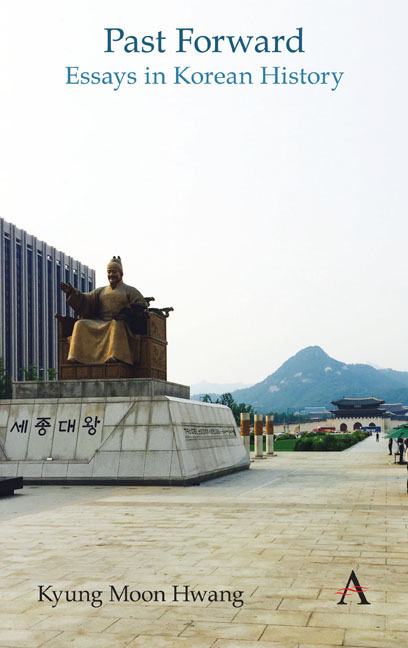Book contents
- Frontmatter
- Contents
- List of Figures
- Foreword
- Chronologies of Korean History
- Themes
- Acknowledgments
- Note on Romanization and Spelling
- Part I Circulating History
- Part II Durable Traditions
- 8 Marking the New Year
- 9 Slavery, Bondage, and Social Hierarchy
- 10 Marriage, Adultery, and Concubinage
- 11 Buddhism and Korean Identity
- 12 Christianity's Rapid Rise
- 13 Civil–Military Balance in Politics
- 14 Regionalism in Elections
- 15 Yeongnam's Strong Presidential Politics
- Part III Ancient Remains
- Part IV Dynastic Depths
- Part V Modern Origins
- Part VI Challenges of Nationhood
- Part VII History Makers
- Part VIII External Presences
- Part IX Trials of Modernization
- Part X Gripped by the Past
- Index
13 - Civil–Military Balance in Politics
from Part II - Durable Traditions
- Frontmatter
- Contents
- List of Figures
- Foreword
- Chronologies of Korean History
- Themes
- Acknowledgments
- Note on Romanization and Spelling
- Part I Circulating History
- Part II Durable Traditions
- 8 Marking the New Year
- 9 Slavery, Bondage, and Social Hierarchy
- 10 Marriage, Adultery, and Concubinage
- 11 Buddhism and Korean Identity
- 12 Christianity's Rapid Rise
- 13 Civil–Military Balance in Politics
- 14 Regionalism in Elections
- 15 Yeongnam's Strong Presidential Politics
- Part III Ancient Remains
- Part IV Dynastic Depths
- Part V Modern Origins
- Part VI Challenges of Nationhood
- Part VII History Makers
- Part VIII External Presences
- Part IX Trials of Modernization
- Part X Gripped by the Past
- Index
Summary
A durable tradition in Korean history has been the balance between civilian and military control over politics, a dynamic that remains somewhat fluid today. As elsewhere, most major shifts in governing form, from the establishment of new kingdoms and dynasties to foreign conquests, came through military means and were led by military men. Through the influence of Confucianism, however, in Korea an overriding principle of civilian control over the military, instead of the other way around, emerged relatively early.
In the ancient era, the recurring rivalry among the so-called Three Kingdoms from the fourth to seventh centuries was followed by Silla's conquest, with military help from China, of the other two kingdoms. Two centuries after the beginning of this Unified Silla kingdom, however, local strongmen emerged to challenge its rule, marking a period of internal conflict that lasted several decades until coming to an end through the exploits of Wang Geon, a local military leader from present-day Gaeseong. In establishing the Goryeo dynasty, Wang reunified the Silla territory, incorporated new lands in the northern part of the peninsula, and consolidated his control through strategic marriage alliances with dozens of other local strongmen.
However, Wang's immediate successors to the throne prevented a military domination of politics by implementing a Confucian governing system, including state examinations for selecting officials. Eventually, though, this civil supremacy, for complex reasons, induced a backlash among military officials, who overthrew the civilian government in the late twelfth century. Thereafter the peninsula came under the hereditary control of military officials, who nevertheless maintained the sovereignty of the Goryeo kings. Ironically, not long after taking over, these military elites themselves came under the siege of the Mongols, who would eventually conquer and rule Korea, Manchuria, China and much of Eurasia over the next 150 years. Like the Korean military elites before them, however, once the Mongols secured control over the peninsula, they allowed a civil-dominated governing form to take hold.
As the Mongolian overlord period came to an end in the latter fourteenth century, another Korean military figure emerged, Yi Seong-gye, whose ancestors had served the Mongols in the northern fringes of the Goryeo realm.
- Type
- Chapter
- Information
- Past ForwardEssays in Korean History, pp. 36 - 38Publisher: Anthem PressPrint publication year: 2019



